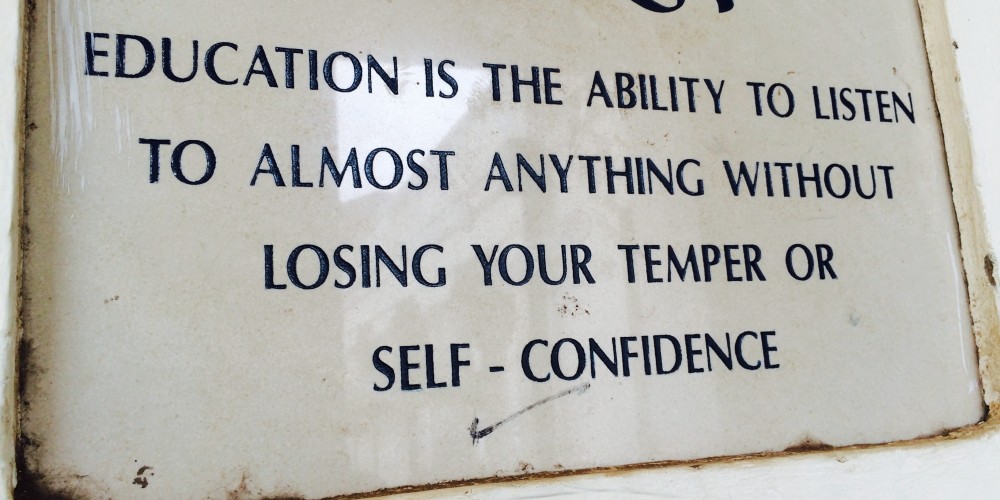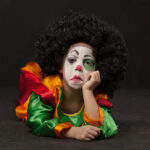Education is acceptance, not antagonism

A friend was visiting Kenya from abroad recently, and I took him to visit his old high school. The place was a shambles, dirty and decrepit. Some of the desks and chairs looked like they had not been changed since my friend last sat on them thirty years ago.
And yet there was gold to be found there. On one corridor wall was this placard: “Education is the ability to listen to almost anything without losing your temper or your self-confidence.” That is from the poet Robert Frost, and it made my day.
It is utterly true: education is not what happens to you in the rooms and halls of any institution; it is what is done to your outlook on the world. That change could come from great books, great teachers, great pedagogy…or just from thoughtful observation of the world combined with deep observation of oneself.
When we refer to education, most of us envisage examinations passed or failed, qualifications held or dropped, doors opened or closed. We think of education as just a means to an end, a piece of paper that allows you to board certain vehicles. We almost never think of education as a journey of awakening in itself – just as a ticket to something else.
Frost sees it differently. In life, you will have to listen to many, many things, every single day. You will have to put up with the opinions of others: in conversations with your loved ones; on television; on social media; on pages like this one. You can count yourself educated not just if you can read the words or understand the language or follow the reasoning; you are educated if you can allow people to have their opinions, without any detrimental effect on yourself.
You are not educated if other people’s opinions make you angry all the time. The outcome of education should not be to make you feel superior to others; it should be the realization that difference is the essence of human behaviour. We differ. We argue. We disagree. All of that is fine. As long as we don’t get angry or resort to violence.
Equally, education has failed you if listening to anyone gives you a crisis of self-confidence. Being in the presence of a knowledgeable person who impresses you should be a spur to self-improvement, not a stick that beats you down. Great thinkers should catalyse our own thoughts, not kill in us the desire to have them. And no one person’s opinions are truly more important than anyone else’s. You may be a wonderful intellect in some fields; yet truly a novice in so many others. Knowing this about yourself, and others, is a great release.
The truth is, however, that by Frost’s measure there are very few educated people around, even in the 21st century. There are many PhD-brandishing professors who cannot entertain a contrarian thought. There are many degree-wielding professionals who imagine a piece of paper makes them superior to anyone else. There are people who want to engage in ad hominem abuse all day long on online forums, spewing bile in a seemingly unending stream.
These are, in fact, the most uneducated amongst us. Over them, give me any day that quiet old man who never went to school but who can listen serenely to anything anyone tells him without agitation. Give me that fruit-seller who knows how to please her customers and is able share a word of common-sense wisdom with any passersby.
Education is ultimately about acceptance: of the things we can change, and of the things we cannot. It is not a flame that burns you and the people you encounter; that is in fact something created by the opposite of education: ignorance. The most educated amongst us are simply those able to see this life as a roadshow that will soon pass and be gone.

Buy Sunny Bindra's new book
The X in CX
here »
Popular Posts
- My books of the yearDecember 14, 2025
- Confessions of an explaining personDecember 7, 2025
- Here’s why you should become foolishNovember 30, 2025
- How to listen, really listenNovember 16, 2025
- Is AI hiring your company into oblivion?November 23, 2025















